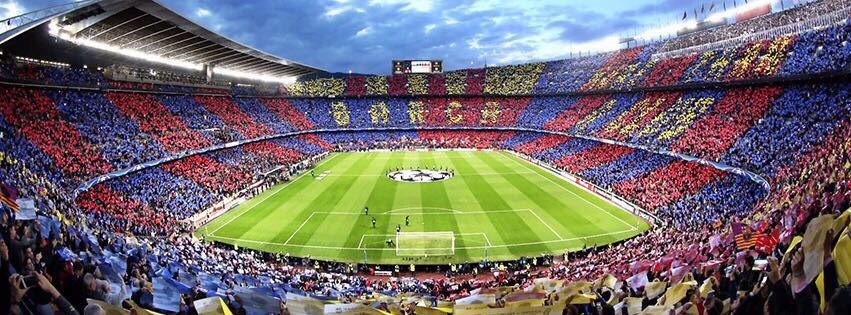
Earlier this month Catalan leaders signed a declaration of independence that would see the region become separate to Spain and could lead to Barcelona being kicked out of La Liga. Catalonians voted overwhelmingly in favour of independence from Spain, and president of the league Javier Tebas has insisted that if this political shift is realised, he would not allow the Catalan team to compete in the competition.
While speaking with the press he said that if a rebellion succeeds, they would make plans to continue life in La Liga without the Spanish giant. His explanation was that Spain’s sport laws dictate that only teams from Spain or Andorra were allowed to participate in Spanish leagues.
However, while speaking at a press conference about the team’s 2016/17 accounts just 24 hours after the announcement, club general director, Oscar Garu, said that the team must stay in the competition due to the organisation’s budget being based on the club’s involvement in La Liga. Barca President Josep Maria Bartomeu admitted that since the referendum, the club has considered playing outside of Spain if an agreement can’t be reached.
Recent rumours have circulated that the Camp Nou outfit could be tempted by a move to the English Premier League. Arsenal’s manager Arsene Wenger quickly dismissed the chance of the Spanish club entering England’s top tier, stating that it would break geographical unity and also common sense. The veteran coach said that if any team was going to make the move to the EPL they should invite Glasgow Rangers or Celtic, who are of course, in Scotland.
Given Barcelona’s huge cultural and indeed financial importance, experts have considered that should move go ahead, the British government could find itself the subject of a possible political backlash internationally if any transition between Catalonia and Spain doesn’t go smoothly.

If the unthinkable happens and Barca are unable to compete in La Liga anymore, it could have a catastrophic impact on the way the competition is marketed, and an extremely detrimental effect on sponsorship interest in the league.
Real Madrid and Barcelona currently dominate the television audience both domestically and internationally. During last season, the two Spanish powerhouses accounted for 46 per cent of the audience in Spain and 60 per cent overseas.
Their continued rivalry is one of the key components that makes the competition one of the greatest in Europe. The resurgence of La Liga as one of European football’s powerhouses has had a huge influence on the fortunes of the Spanish national side, who have gone from perennial nearly-men to regular tournament favourites in the last generation. Indeed, Spain are amongst the favourites for next year’s World Cup in Russia, with odds of 7-1 in international betting markets. Quite how Barcelona’s move to the altogether more rough-and-tumble style of the Premier League would effect the national side would make for interesting viewing.
Outside of Atletico Madrid, no other club has won the league since the 2003/04 season, when Valencia beat Barca to the title by five points. Taking away one of the most fiercest competitors in world football would only do more harm than good for the competition’s future success.
The Clasico fixture alone attracts an estimated 650 million viewers world-wide. If Barcelona were to leave, there would undoubtedly be a massive loss in the competition’s attraction, not to mention the complications with rights holders and current deals, and of course the re-negotiations of television rights, which would lose economic viability.
Hopefully the hard-line stance of La Liga’s president Tebas softens down a little if independence is established, and the Spanish giants can continue to compete in the league, to which they have given so much.